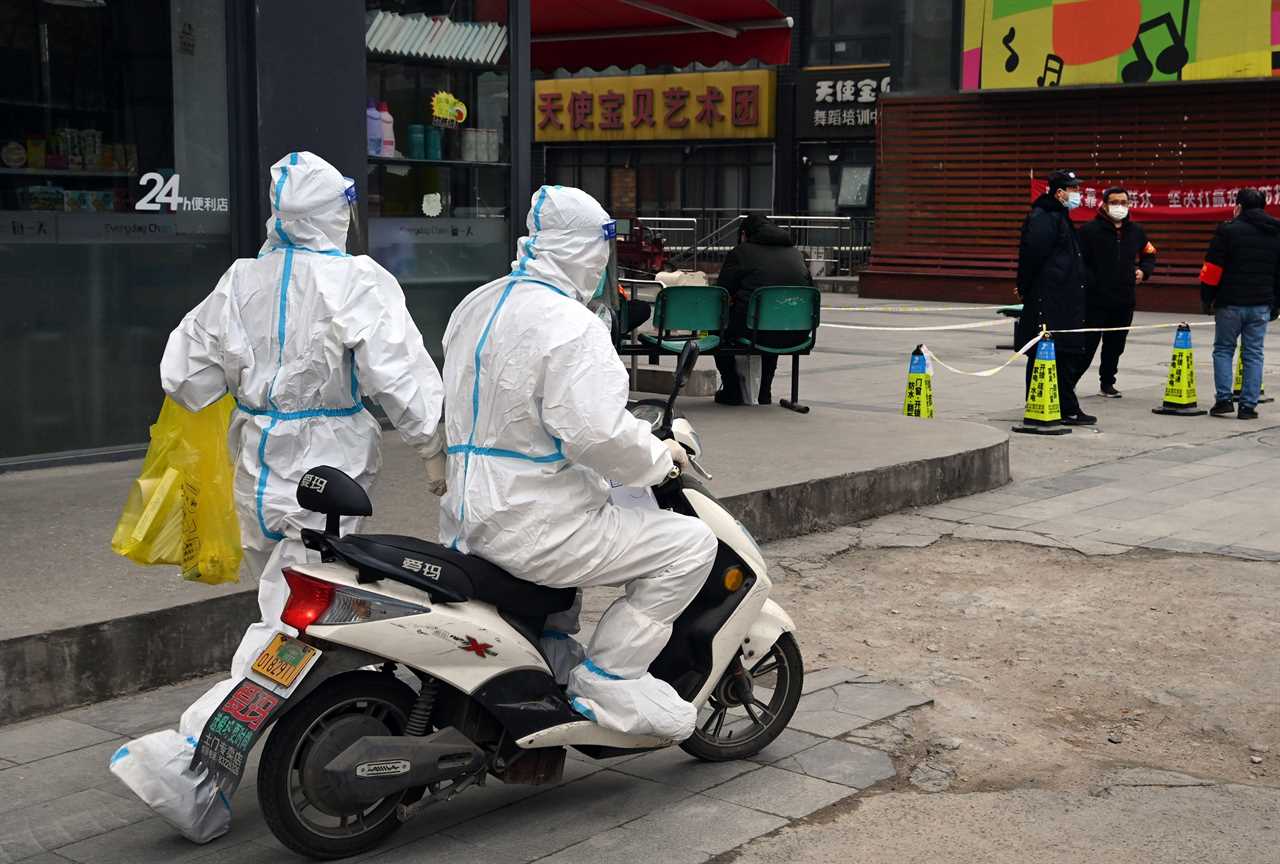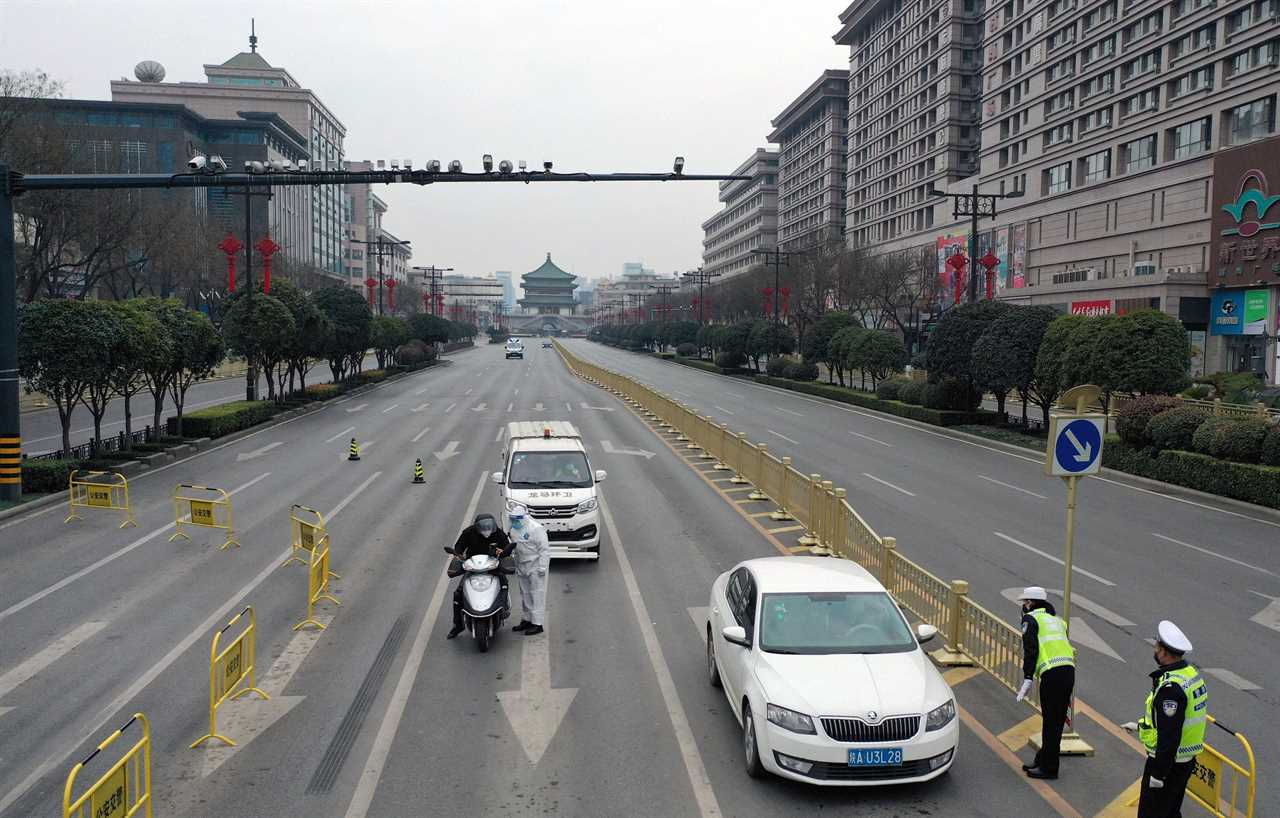CHINA’S zero-Covid policy could be President Xi Jinping’s undoing as his overblown strategy has “locked the country into isolation” from the rest of the world, according to an expert.
Former diplomat Roger Garside believes the Communist regime has backed China into a corner as its drastic zero-tolerance approach could “implode upon them or cause a political crisis”.
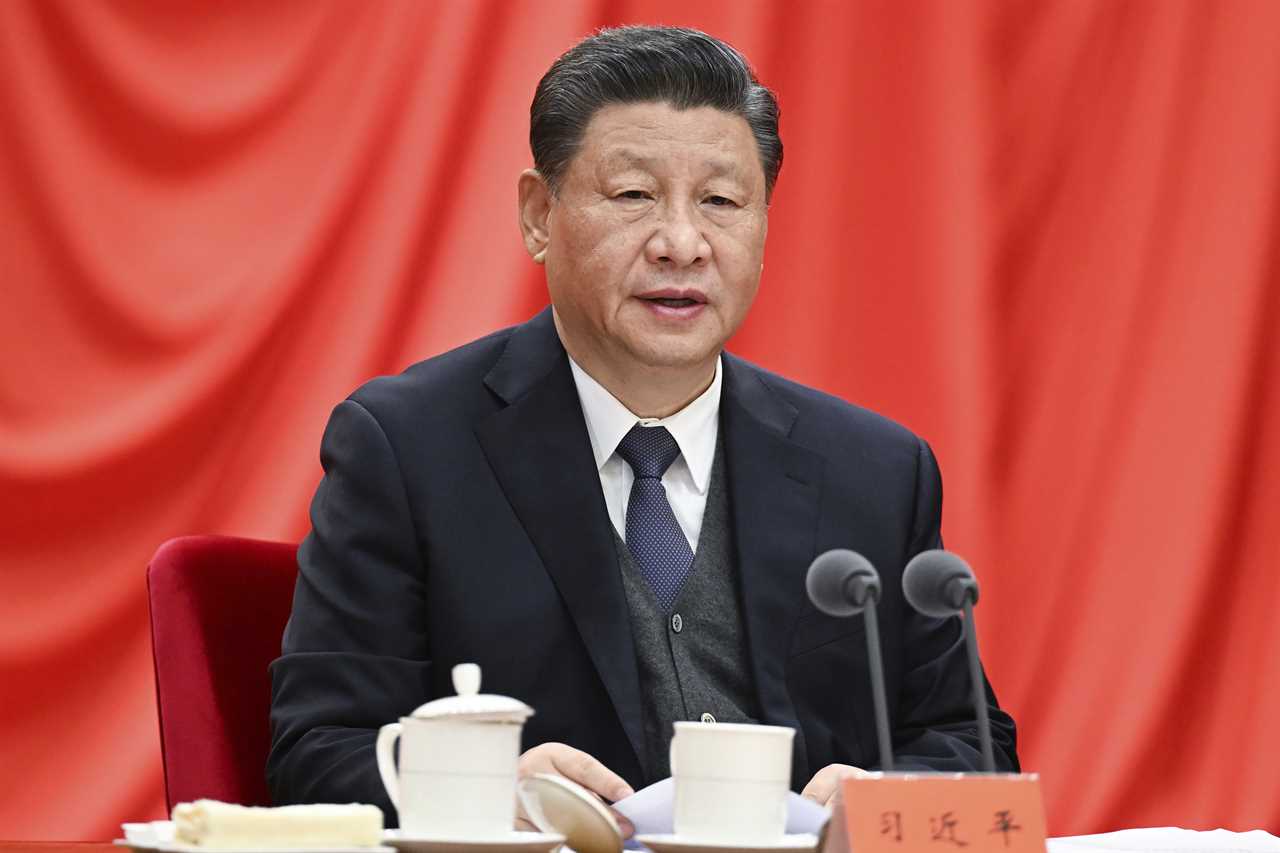
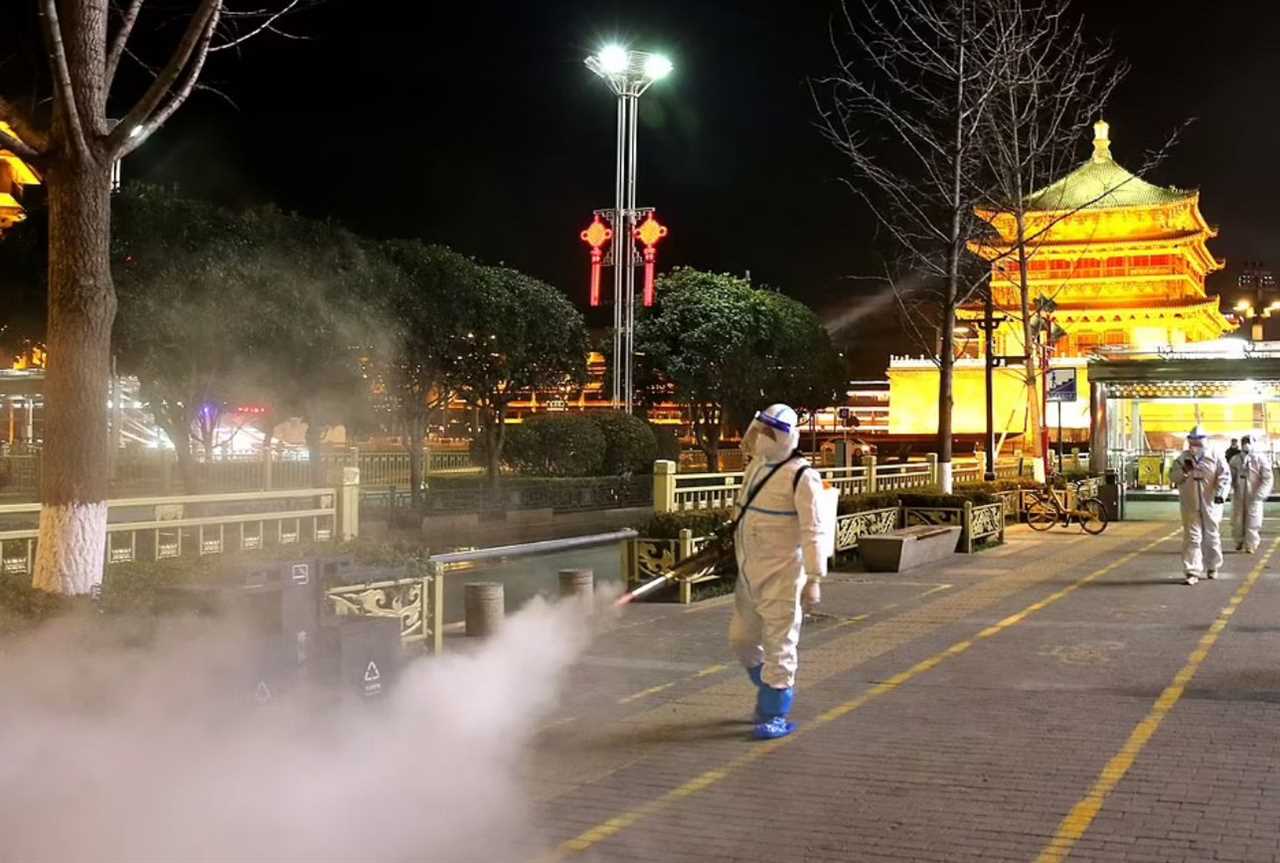
The expert says that by refusing to import vaccines and enforcing severe lockdowns, the sprawling 1.4billion population has “failed to gain herd immunity”.
As a result, Mr Garside believes the hardline policy could now inflict “heavy costs” on China’s economy and society as citizens grapple with fast-spreading outbreaks and unemployment as businesses are forced to close.
Instead of learning to live with the virus as other countries around the world are, the totalitarian regime’s response to the pandemic is to instead aim to have zero cases with tightly shut borders, mass testing and sweeping quarantines.
Meanwhile, most nations are increasingly relying on large-scale, more relaxed, pragmatic provisions when it comes to testing and mask-wearing – but the regime is instead causing widespread fear and anxiety by having cops round up entire buildings in the dead of night to be tested.
And China’s brutal strategy sees extreme restrictions imposed on towns and cities with just a handful of infections, with entire buildings or areas sealed off even if only one case has been recorded as those who test positive are shipped off to horror quarantine camps.
Last month, Liang Wannian – head of China’s National Health Commission’s Covid task force – said the policy was “definitely not something that will continue forever”.
But it’s feared there could be no endgame for China’s stringent policy as a move away from it could cause thousands of deaths.
According to researchers from the China Centre for Disease Control and Prevention, easing curbs in Covid-zero regions like China could cause some 2million deaths in a year – with the key to controlling the virus developing vaccines that are better at preventing infection.
Within a matter of months, China’s policy has seemingly gone from an impressive record of preventing up to 200million infections and three million deaths to a situation that could easily spiral out of control as towns and cities suffer outbreaks.
In Hong Kong, cases of the Omicron variant have snowballed, spreading quickly through the city’s population – overwhelming the already under pressure healthcare system.
Question marks now hang over how sustainable the hardline strategy is as Mr Garside believes it could now play a major part in Xi’s downfall as he stubbornly resists pressure to ditch the policy – making China more and more alienated from the rest of the world adopting the living with Covid strategy.
With Xi readying himself to be reappointed as leader of the Community Party later this year, Mr Garside says his prospects could be “wrecked” if Omicron or another variant “were to break through China’s defences and a Covid tsunami were to wreak havoc in society”.
He told Trending In The News Online: “It is conceivable that their Covid-19 strategy will implode upon them or cause a political crisis.
“China has a grave problem in its zero-Covid strategy because the rest of the world is moving towards living with Covid – thanks to a combination of effective vaccines and herd immunity.
“We are moving towards treating Covid as endemic. And China cannot do that at the moment because they have not developed herd immunity: their vaccines are shown to be much less effective than our mRNA ones and their severe lockdowns have prevented people from gaining immunity through infection.
“They have refused to import vaccines produced abroad because under Xi Jinping they wish to demonstrate to the world their model of governance is superior to ours.”
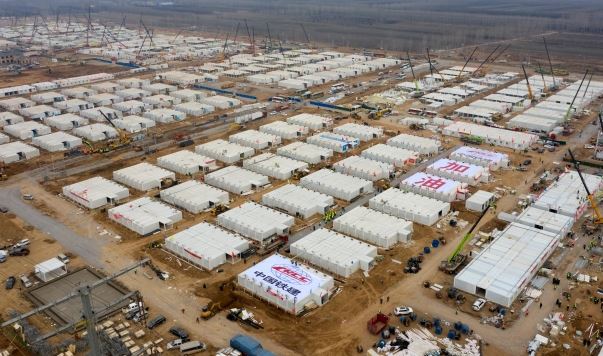
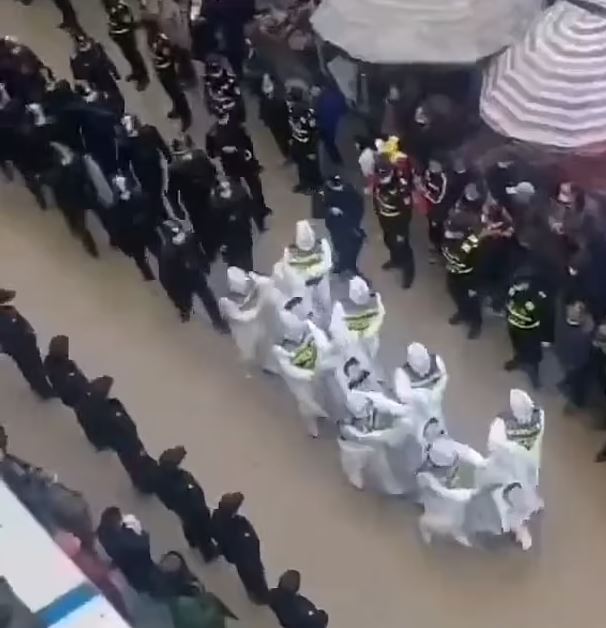
Mr Garside – author of China Coup: The Great Leap to Freedom – says the country is now rushing to develop an mRNA vaccine after initially opting to use traditional inactivated virus technology to create jabs that have been shown to produce a weaker immune response.
He believes the country is in an ideological stare-down with the rest of the globe as Xi battles between losing political face by no longer clinging onto the zero-Covid policy – or suffering the adverse effects of being “isolated” from the world because of the strategy.
“If they are to save China they may need to reverse their decision not to import foreign vaccines – which would be a huge political climb down,” he added.
Mr Garside says the regime has “worked hard to convince its subjects” that the strategy has been a “great success” – but believes citizens will be counting the costs with economic and social issues.
But he says the severity of such consequences are “impossible to say” as “the regime is not publishing full, national estimates of the costs to the economy”, with “strict censors” on its officials and people describing the social costs.
“It is clear from the partial information that is published that there are heavy costs,” he said.
“There has been a cost in unemployment – an economist in the Chinese Academy of Social Sciences estimated that by the end of March 2020, as many as 80million workers may have been unemployed.
“Tens of millions of immigrant workers have been stranded in their rural home districts, prevented from returning to the cities where they were employed.”
And small businesses have also suffered, with 4.37million closing in China while only 1.32milion new ones registered, according to Tianyancha, a business data and investigation platform.
Mr Garside says there have also been “huge costs” in government expenditure – with, for example, local authorities in the city of Guangzhou spending almost £1billion on testing for 32million people after an outbreak of just a few hundred cases.
“Similar lockdowns have been imposed in other big cities, and the cost to government must have been similar,” the expert added.
Mr Garside believes fed-up rivals from within his own party see the over-the-top policy and his style of leadership as “regression towards a failed model for governing” and could use it as ammunition to oust him.
And world leaders – reeling from China mysteriously unleashing Covid into the world yet stalling a thorough investigation as officials continue to bat away claims the virus leaked from a Wuhan lab – may help engineer his topple from the top.
“If there is no pandemic in China before October, I expect Xi to be reappointed leader of the Party for a further five-year term, but I believe he will be ousted from power within next few years,” Mr Garside said.
“He has over-reached himself at home and abroad by leading China in a direction which many powerful people in the party – not to speak of those outside – regard as regression, going backwards towards a failed model for governing China.
“What is crucial is that US and its allies use their power to encourage and enable those within the Chinese leadership who want a free China to achieve it.
“The US can impose sanctions on foreign banks which would kill them. Frankly, the US holds the power of life and death through the international banking systems.
“And the US and its allies also control the world’s major reserve currencies. Are we prepared to use these sanctions, these levers of power? I believe we should be developing strategies for doing so.
“As we have seen with Huawei, the sanctions have delivered huge damage to that company.”
But Ashok Swain, Professor of Peace and Conflict Research at Uppsala University, has argued that as China is such a huge country, its hardline policy won’t affect the economy.
“Even in 2021, when the rest of the world’s economy turned towards negative growth, the Chinese economy continued to grow,” he told Trending In The News Online.
“Xi sees that his country has become rich and influential enough to be isolated by locking down the country.”
